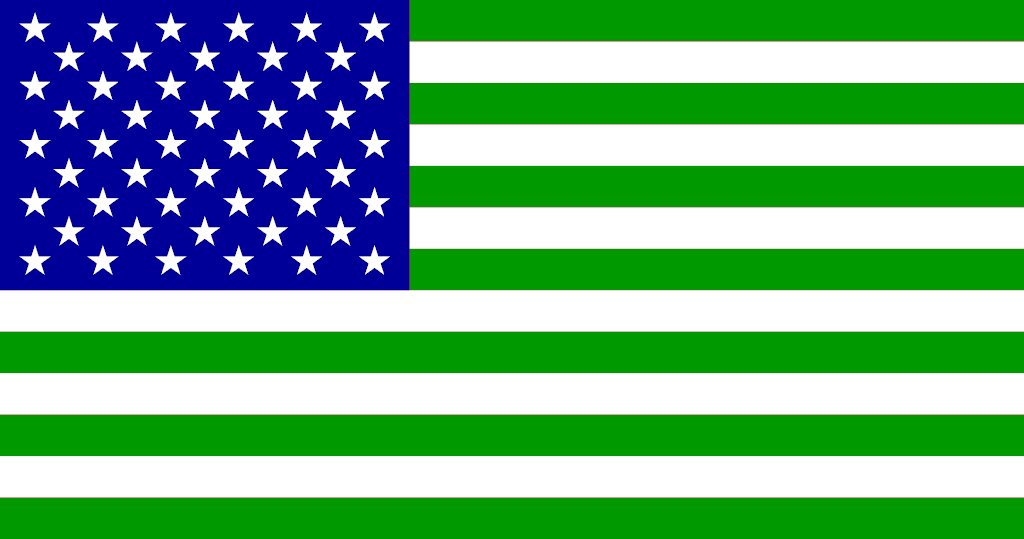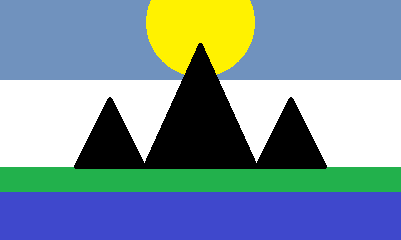2014 Modern World STGOD Roll Call
Posted: 2014-05-25 02:49pm
To prevent confusions where I think Skywalker is someone else and such, let's go ahead and post here what our countries are again.
United States of Cascadia

Information
Formal Name: The United States and Republics of Cascadia
Short Formal Name: The United States of Cascadia
Short Name: Cascadia, the USC
Government Type: Federal Republic
Head of State: President Alexander W. Penton. (Whig Party)
Head of Government: President Alexander W. Penton (Whig Party)
Legislature: Bicameral Congress, lower chamber is the House of Representatives, democratically elected by basis of population arranged into districts; upper chamber is the Senate, elected by the states and republics of the Union.
Judicial Branch: Supreme Court, composed of nine judges with the sole powers of judicial review.
Capitol: Portland, Federal District, on both sides of the Columbia River at Portland where the states of Columbia and Oregon meet.
Major Political Parties: Whig Party, Liberal Party, Democratic Party, Conservative "Tory" Party
Minor Political Parties: Stalwart Party (Right-Military Conservatives), Labor Party (Left Trade Unionist), Evergreen Party (Left-Centrist, environmental concerns), Cascadian Socialist Party (Left Marxist), First Nations' Party (Advocates of semi-independence for the First Nation Republics)
Currency: Cascadian Dollar ($)
Population: 158,000,000 (2014 est.)
GDP: $7.94 trillion, $50,253 per capita
Major Industries: Biotech, Fishing, Logging, Shipbuilding, Computer Technology, Mineral Extraction, Aerospace
Major Imports: Rare Minerals, Consumer Goods, Foodstuffs
Energy Information: Modern power grid. Nuclear, Hydroelectric, Solar, and Wind Farms produce the vast majority of the country's power. Natural gas power common in the north near natural gas and oil fields.
Major Political Parties
Whig Party: The Whig Party is a left-centrist party that favors some government involvement in the national economy, specifically in matters of "national importance", usually defined as infrastructure and regulation of power industries and healthcare. The Whigs tend to favor restraint in giving too much government authority for fear of undermining the traditional freedoms of the nation. They will, however, support regulation where there is a demonstrated need for it.
Liberal Party: Named for their adherence to liberal laissez faire economics, the Liberal Party is considered right-wing centrist. They acknowledge "reasonable interest" in "vital areas", but favor deregulation of industry when at all possible. Liberal Party activists promote the idea of personal responsibility as part of the national character of civic virtue and duty.
Conservative Party: Derisively called "Tories' due to the early days of the Republic when they were considered monarchists, the Conservatives are not opposed to state power the same way Liberals are, believing it is necessary to safeguard the country from threats and to encourage the principles of civic duty and moral stance in the populace. Generally right-wing moralist.
Democratic Party: Founded after the Klavostani War in 1907, the Democrats believe in vox populi and the progress of society. They favor active government intervention to restrain powrful business and private interests to protect the lower and middle classes from upper class malfeasance. They oppose government power in personal and private life and believe in personal freedom, but believe powerful government regulation, taxation, and monitoring of the economy is necessary to prevent private concerns from ruining the public.
Stalwart Party: Named for the turn-of-the-century veterans movement, the Stalwarts are considered a right wing minor party due to their limited plank; the growth of the Cascadian military, especially the army, to high levels. The Stalwart Party branched out of the Liberals, Conservatives, and Whigs following the detentè with Klavostan, declaring the agreements a mistake and that the Cascadian Army should be kept at a million men in strength. The Stalwarts conistantly vote for higher defense spending.
Labor Party: The Labor Party branched off of the Democrats in 1920 mand consider themselves the oldest "unionist" party in current existence. They go further than the Democrats in their belief of economic control by the government, believing that strict laws to harshly limit business in favor of trade unions are required. Many of their votes come from the worker-owned co-ops and communes of Klamath, Oregon, and Columbia. They are considered Trade Unionist Leftists.
Evergreen Party: Founded in response to the rise of pollution in the great cities in the 1960s, the Evergreen Party are also considered leftist, but their plank is dominated by the mantra that everything done must be for the good of nature and of Cascadia's many and beautiful natural wonders. The Evergreen Party is also known for advocating the strictest punishments for illegal whaling and animal captivity.
Cascadian Socialist Party: The Marxist party of Cascadia. The Socialists advocate wide-spread constitutional reform to enact complete government control of the economy, high taxation of anyone with a six digit income, and full rapproachment with Klavostan. They are aligned to the Klavostani side of the Comintern.
Christian-Socialist Party: Counterpart of the Socialists, the Christian-Socialists beleive in the form of religious socialism practiced in the Union of Orthodox and Catholic Socialist Republics and of Holy Democratic Kagaria. They are most popular in the socialist-minded of the south's voters, who see Klavostan as a vicious enemy.
First Nations' Party: A small organization made by radical advocates of the Shoshone Republic, the FNP believes in bringing semi-independence to the First Nation Republics in preparation of taking over
United States of Cascadia

Information
Formal Name: The United States and Republics of Cascadia
Short Formal Name: The United States of Cascadia
Short Name: Cascadia, the USC
Government Type: Federal Republic
Head of State: President Alexander W. Penton. (Whig Party)
Head of Government: President Alexander W. Penton (Whig Party)
Legislature: Bicameral Congress, lower chamber is the House of Representatives, democratically elected by basis of population arranged into districts; upper chamber is the Senate, elected by the states and republics of the Union.
Judicial Branch: Supreme Court, composed of nine judges with the sole powers of judicial review.
Capitol: Portland, Federal District, on both sides of the Columbia River at Portland where the states of Columbia and Oregon meet.
Major Political Parties: Whig Party, Liberal Party, Democratic Party, Conservative "Tory" Party
Minor Political Parties: Stalwart Party (Right-Military Conservatives), Labor Party (Left Trade Unionist), Evergreen Party (Left-Centrist, environmental concerns), Cascadian Socialist Party (Left Marxist), First Nations' Party (Advocates of semi-independence for the First Nation Republics)
Currency: Cascadian Dollar ($)
Population: 158,000,000 (2014 est.)
GDP: $7.94 trillion, $50,253 per capita
Major Industries: Biotech, Fishing, Logging, Shipbuilding, Computer Technology, Mineral Extraction, Aerospace
Major Imports: Rare Minerals, Consumer Goods, Foodstuffs
Energy Information: Modern power grid. Nuclear, Hydroelectric, Solar, and Wind Farms produce the vast majority of the country's power. Natural gas power common in the north near natural gas and oil fields.
Major Political Parties
Whig Party: The Whig Party is a left-centrist party that favors some government involvement in the national economy, specifically in matters of "national importance", usually defined as infrastructure and regulation of power industries and healthcare. The Whigs tend to favor restraint in giving too much government authority for fear of undermining the traditional freedoms of the nation. They will, however, support regulation where there is a demonstrated need for it.
Liberal Party: Named for their adherence to liberal laissez faire economics, the Liberal Party is considered right-wing centrist. They acknowledge "reasonable interest" in "vital areas", but favor deregulation of industry when at all possible. Liberal Party activists promote the idea of personal responsibility as part of the national character of civic virtue and duty.
Conservative Party: Derisively called "Tories' due to the early days of the Republic when they were considered monarchists, the Conservatives are not opposed to state power the same way Liberals are, believing it is necessary to safeguard the country from threats and to encourage the principles of civic duty and moral stance in the populace. Generally right-wing moralist.
Democratic Party: Founded after the Klavostani War in 1907, the Democrats believe in vox populi and the progress of society. They favor active government intervention to restrain powrful business and private interests to protect the lower and middle classes from upper class malfeasance. They oppose government power in personal and private life and believe in personal freedom, but believe powerful government regulation, taxation, and monitoring of the economy is necessary to prevent private concerns from ruining the public.
Stalwart Party: Named for the turn-of-the-century veterans movement, the Stalwarts are considered a right wing minor party due to their limited plank; the growth of the Cascadian military, especially the army, to high levels. The Stalwart Party branched out of the Liberals, Conservatives, and Whigs following the detentè with Klavostan, declaring the agreements a mistake and that the Cascadian Army should be kept at a million men in strength. The Stalwarts conistantly vote for higher defense spending.
Labor Party: The Labor Party branched off of the Democrats in 1920 mand consider themselves the oldest "unionist" party in current existence. They go further than the Democrats in their belief of economic control by the government, believing that strict laws to harshly limit business in favor of trade unions are required. Many of their votes come from the worker-owned co-ops and communes of Klamath, Oregon, and Columbia. They are considered Trade Unionist Leftists.
Evergreen Party: Founded in response to the rise of pollution in the great cities in the 1960s, the Evergreen Party are also considered leftist, but their plank is dominated by the mantra that everything done must be for the good of nature and of Cascadia's many and beautiful natural wonders. The Evergreen Party is also known for advocating the strictest punishments for illegal whaling and animal captivity.
Cascadian Socialist Party: The Marxist party of Cascadia. The Socialists advocate wide-spread constitutional reform to enact complete government control of the economy, high taxation of anyone with a six digit income, and full rapproachment with Klavostan. They are aligned to the Klavostani side of the Comintern.
Christian-Socialist Party: Counterpart of the Socialists, the Christian-Socialists beleive in the form of religious socialism practiced in the Union of Orthodox and Catholic Socialist Republics and of Holy Democratic Kagaria. They are most popular in the socialist-minded of the south's voters, who see Klavostan as a vicious enemy.
First Nations' Party: A small organization made by radical advocates of the Shoshone Republic, the FNP believes in bringing semi-independence to the First Nation Republics in preparation of taking over
